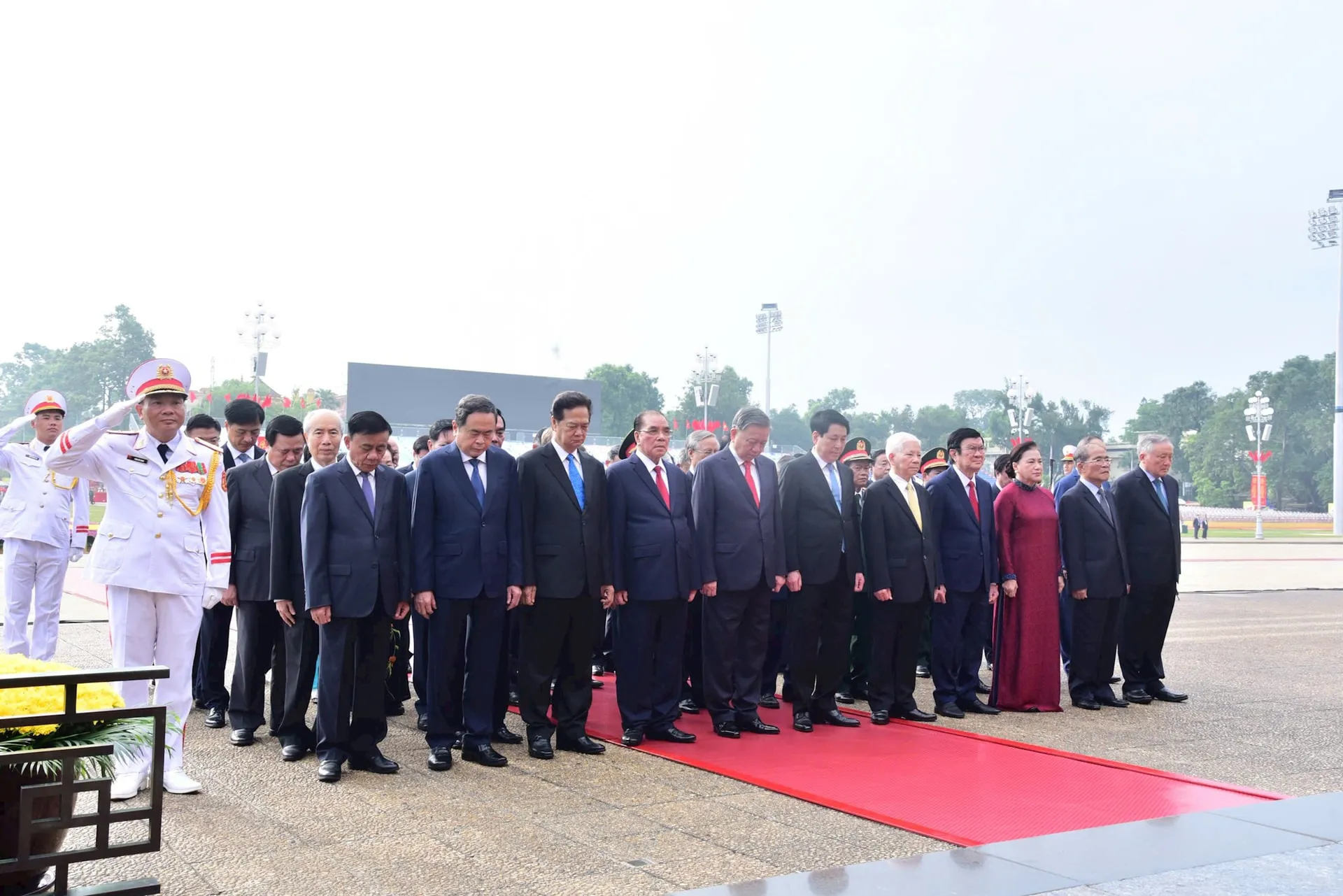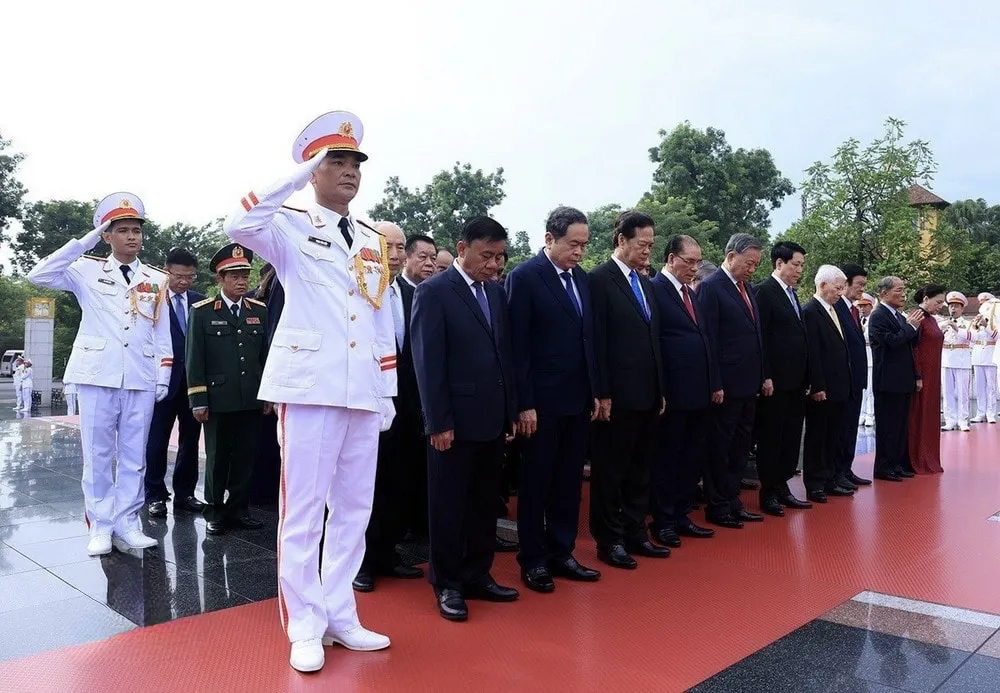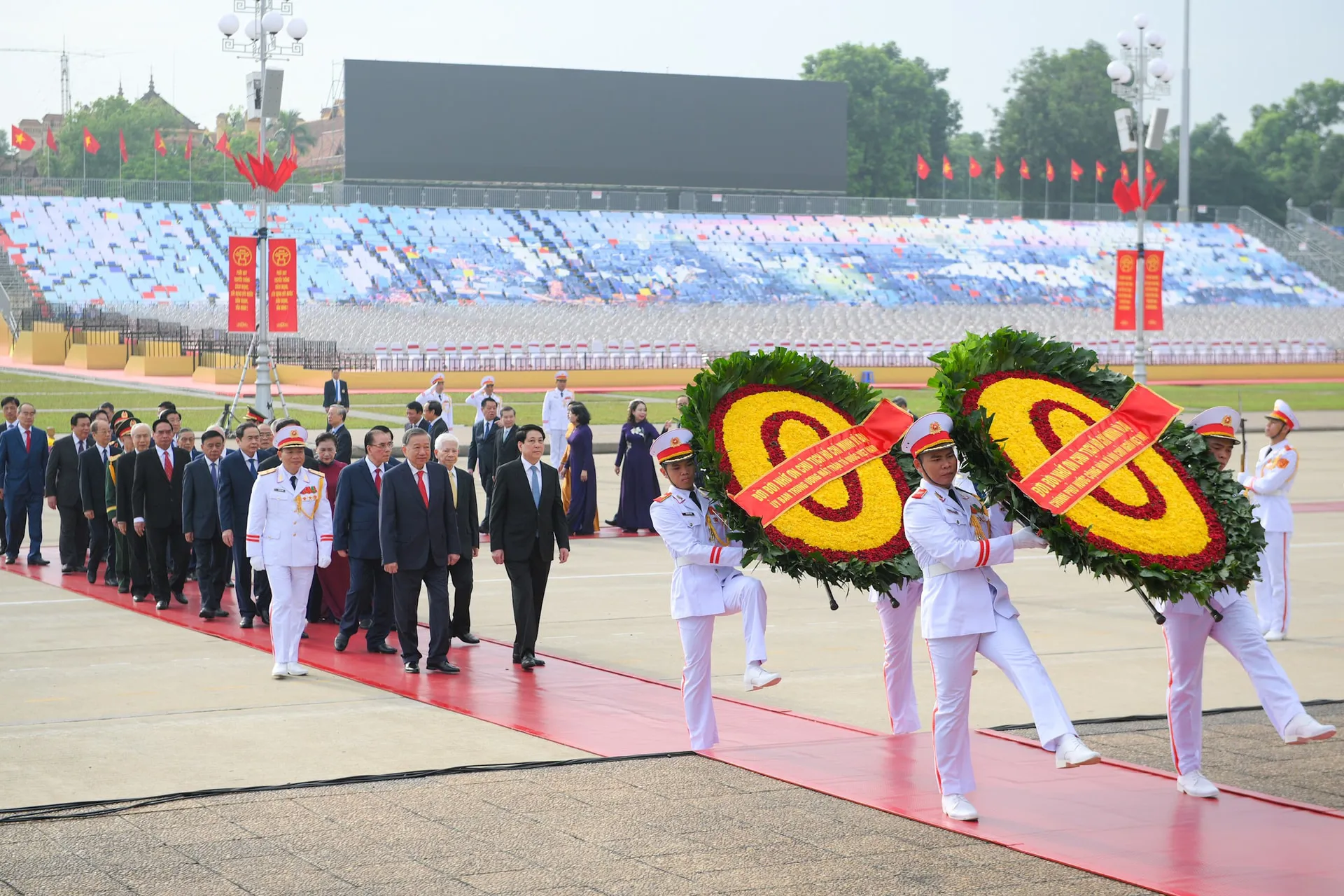On the morning of September 1, to commemorate the 80th anniversary of the successful August Revolution (August 19, 1945 – August 19, 2025) and the National Day of the Socialist Republic of Vietnam (September 2, 1945 – September 2, 2025), a delegation of representatives from the Central Committee of the Party, the National Assembly, the President, the Government, the Central Committee of the Vietnam Fatherland Front, along with various ministries, sectors, and the City of Hanoi, paid respects at the Ho Chi Minh Mausoleum and laid wreaths in memory of heroic martyrs at the Memorial to Heroic Martyrs (Bac Son Street, Ba Dinh, Hanoi).
The delegation was led by the General Secretary.
The delegation included members of the Politburo, the President; former members of the Politburo, former Presidents; former members of the Politburo, former Prime Ministers; members of the Politburo, the Chairman of the National Assembly; former members of the Politburo, former Chairmen of the National Assembly; members of the Politburo, Central Committee Secretaries, Chairman of the Central Committee of the Vietnam Fatherland Front; members of the Politburo, Permanent Secretary of the Secretariat; other members of the Politburo, former members of the Politburo; Central Committee Secretaries; former Central Committee Secretaries; members of the Central Committee, Vice Presidents, Vice Chairmen of the National Assembly, Deputy Prime Ministers; leaders of various committees, ministries, sectors, the Fatherland Front, and central mass organizations…
The delegation’s wreath bore the inscription: “Eternal Gratitude to the Great President Ho Chi Minh.” With infinite gratitude, the delegation of current and former Party and State leaders respectfully remembered President Ho Chi Minh, the brilliant leader and national liberation hero.
He devoted his entire life to the people and the nation, leading our Party and our People to glorious victories, bringing honor to our nation and our country. His ideology and cause are invaluable assets, a torch lighting the way for our nation to stride confidently into the future.
On September 2, 1945, at the historic Ba Dinh Square, President Ho Chi Minh read the Declaration of Independence, solemnly announcing to the world the birth of the Democratic Republic of Vietnam (now the Socialist Republic of Vietnam).

President Ho Chi Minh is the brilliant embodiment of the morality, intelligence, mettle, and conscience of the nation and the era. He is the brilliant leader, the great teacher of the Vietnamese revolution, the national liberation hero, a world cultural celebrity, an exemplary international communist soldier, and a close friend of peace-loving and progressive peoples worldwide.
Before the spirit of President Ho Chi Minh, the Party and State leaders respectfully expressed their infinite gratitude for his contributions to the glorious revolutionary cause of the Party and the nation; vowing to continue studying and following his ideology, morality, and style, constantly striving to realize his aspiration and desire for a strong, prosperous Vietnam where the people enjoy warm and happy lives.

Subsequently, the delegation of current and former Party and State leaders, and the Central Committee of the Vietnam Fatherland Front, proceeded to lay wreaths and offer incense in memory of the heroic martyrs at the Memorial to Heroic Martyrs on Bac Son Street. The delegation’s wreath bore the inscription “Eternal Gratitude to the Heroic Martyrs.”
In a solemn and respectful






